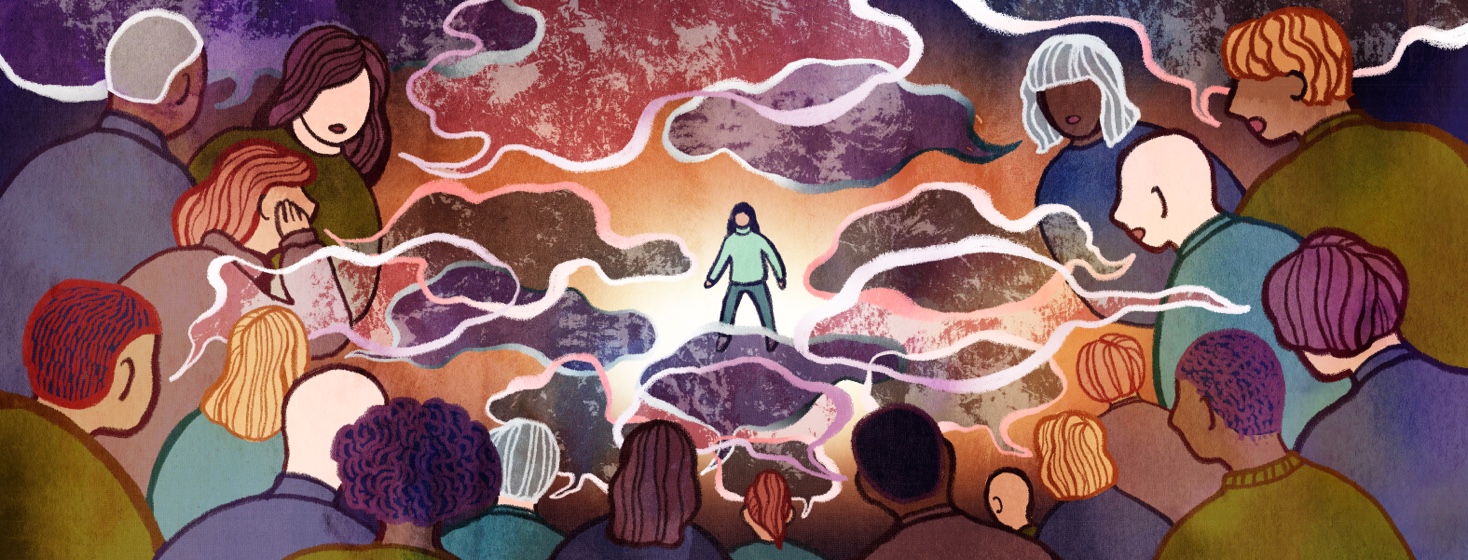What NOT to Say to an Ovarian Cancer Survivor
I never anticipated being a cancer survivor. But once I was dealt these cards, I decided that I wanted to be a voice for other women who may be in a similar situation - and here we are. Ever since I publicly shared my story, I knew I would receive various feedback. I received countless messages from people I hardly ever spoke to. I also watched other people I grew up being close with completely disregard my post.
The thing is, it doesn't matter to me whether people say something or not. The thing that matters is that if they choose to say something, make sure it is respectful.
What NOT to say to an ovarian cancer survivor
So, I have compiled a shortlist of things to NOT say to a cancer survivor, specifically survivors of ovarian cancer. These may seem obvious, surprising, or maybe even unrealistic. But trust me, people will surprise you. All of these have been said to me over the past year.
1) You're so strong or brave!
We know, and we have no other choice. It sucks to have to be strong. We shouldn’t have to be, especially since this could have been prevented or the cancer could have been found earlier. Hearing we are strong only reminds us of how weak cancer has made us.
2) I'm so sorry
Why? You didn’t do anything. You can’t do anything to save me and I can’t do anything to make your pity for me go away. Also, I’m sorry too. Mainly for not being able to answer the way you would expect me to, which is "it's okay."
Let's be real, being diagnosed with cancer is not okay.
3) You talk about it a lot... Why do you talk about it so much?
It’s how I process my trauma and how I advocate for women who aren’t listened to by their doctors. By you asking this question, it suggests that there is a proper way to cope with trauma and that talking about it isn’t one of them. That is simply not true.
4) At least you don't have to go through chemo/surgery/get a port/etc. like normal cancer patients
Do not minimize my trauma. My cancer experience is valid no matter what treatment I receive.
5) Can you have kids? Do you still have all your reproductive organs?
To put it bluntly, this is an invasive question. It is none of your business if I have the reproductive structure to birth kids. There is this social need to police women’s bodies that became even more apparent when I went public with my story. Women are more than their ability to create life and that should not be the first concern when meeting a woman who has survived ovarian cancer.
Would you look at me differently if I answered “no”? Or what if I answered yes – would that mean that I am better or lucky? I am proud to be more than my diagnosis, genetic makeup, and existing structure. It’s not an appropriate question in mainstream culture, so why does my diagnosis suggest the loss of bodily privacy?
6. Just get over it already
Don’t tell cancer patients how to feel about their cancer diagnosis. That is not your place. We all heal at different paces. Cancer is traumatic and we deserve to relish in the pain, anger, sadness, and guilt if we choose to.
What should you say to an ovarian cancer survivor?
After reading this list you may be wondering – what should you say to a cancer patient and/or survivor? The answer is – ask them. My opinion on what to say versus not say is strictly my own. I am only one cancer survivor. In fact, that’s the best part about being a part of this community. We all have our own unique experiences with and relationship to cancer.
So, simply ask the person what they need and want to hear. Ask them what they expect of you. Sometimes they will know exactly what to ask of you and you should be 100% respectful of that. Sometimes they may not know, or they may not want to answer, and that is okay. At the end of the day, it’s their story. Follow their lead. Power and control over our bodies were stripped from us throughout the process of diagnosis, treatment, and recovery.
After all, we have been through, we should at least get to choose how to live life during and after cancer. Let us write our own narrative.

Join the conversation